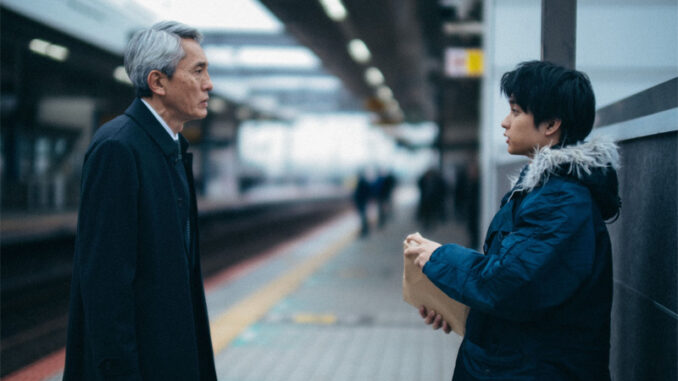
Whenever I look for a movie to watch on Netflix, I often end up watching historical films, partly because of the period costumes but mostly because they give me glimpses of the past.
Watching Breathless (1960) by Jean-Luc Godard, for instance, provides a unique experience of what it was like to walk down the streets of Paris in the 1960s, with the film taking viewers through the city’s narrow streets.
I learned about the tea ceremony after watching the poignant film Every Day is a Good Day (Nichinichi kore kôjitsu) by Tatsushi Ômori. Even contemporary K-dramas like Reply 1988 take us on a nostalgic trip back to the late 1980s through the lives of five families and their five teenage kids living in a small neighborhood in Seoul.
Staged or not, films are narrated histories that reflect how daily life in a certain period unfolded—how people lived, how they worked, how families were formed, and how the social fabric of a community or nation was transformed.
This year, explore the world and gain new perspectives through the well-curated selections of the QCinema International Film Festival. From the masculine and feminine gaze to new ways of seeing the world, this year’s festival showcases 77 titles, including 22 short films and 55 full-length films, across 11 sections.

Following the theme “The Gaze,” the 12th edition of QCinema offers a rich and immersive experience that opens new insights into politics, gender, race, and more.
Director’s Factory Philippines opens the festival, featuring an exciting omnibus film project created in collaboration with Cannes Directors’ Fortnight. This groundbreaking initiative features the works of four filmmakers from the partner country and four from other nations – Walay Balay by Eve Baswel (Philippines) and Gogularaajan Rajendran (Malaysia); Nightbirds by Maria Estela Paiso (Philippines) and Ashok Vish (India); Silig by Arvin Belarmino (Philippines) and Lomorpich Rithy (Cambodia); and Cold Cut by Don Eblahan (Philippines) and Tan Siyou (Singapore).
The closing film is Cloud by Kiyoshi Kurosawa. Premiering at the 81st Venice International Film Festival, this psychological thriller follows a young man who resells goods online and gets caught in life-threatening mysteries. Starring Masaki Suda, it was selected as Japan’s Best International Feature Film entry at the 97th Academy Awards.
QCinema 2024 features two main competition sections: QCShorts International and the Asian Next Wave. QCShorts has expanded to include Southeast Asian films, with six Filipino short film grantees competing.
Competing titles include Alaga by Nicole Rosacay; Kinakausap ni Celso ang Diyos by Gilb Baldoza; Refrain by Joseph Dominic Cruz; RAMPAGE! (o ang parada) by Kukay Bautista Zinampan; Supermassive Heavenly Body by Sam Villa-Real; and Water Sports by Whammy Alcazaren.
Southeast Asian entries include: Are We Still Friends? by Al Ridwan (Indonesia); Here We Are by Chanasorn Chaikitiporn (Thailand); In the Name of Love I Will Punish You by Exsell Rabbani (Indonesia); Peaceland by Ekin Kee Charles (Malaysia); Saigon Kiss by Hồng Anh Nguyễn (Vietnam/Australia/Germany); and WAShhh by Mickey Lai (Malaysia/Ireland).

The Asian Next Wave Competition highlights emerging filmmakers, featuring: Don’t Cry Butterfly by Duong Dieu Linh (Vietnam, Indonesia, Philippines, Singapore); Pierce by Nelicia Low (Taiwan, Poland, Singapore); Mistress Dispeller by Elizabeth Lo (China, USA); Happyend by Neo Sora (Singapore, UK, USA); Tale of the Land (Indonesia, Philippines, Qatar, Taiwan); Viet and Nam by Truong Minh Quy (Philippines, Vietnam, Singapore, France, Netherlands, Germany, Italy, USA); and Moneyslapper by Bor Ocampo (Philippines).
QCinema’s RainbowQC section celebrates diverse LGBTQIA+ stories, featuring: Baby by Marcelo Caetano; The Balconettes by Noémie Merlant; My Sunshine by Hiroshi Okuyama; Pooja, Sir by Deepak Rauniyar; and Sebastian by Mikko Mäkelä.
New Horizons showcases debut feature films from new directors, including Blue Sun Palace by Constance Tsang; Cu Li Never Cries by Phạm Ngọc Lân; Santosh by Sandhya Suri; The Major Tones by Ingrid Pokropek; and Toxic by Saulė Bliuvaitė. Both RainbowQC and New Horizons are now international competition sections under the Special Critics Prize awards.
Screen International highlights 10 films from acclaimed directors, including Afternoons of Solitude by Albert Serra and When Fall is Coming by François Ozon. QCinema also introduces new sections: QCLokal, Rediscovery, Contemporary Italian Cinema, and QCinema Selects.
The festival will take place from Nov. 8 to 17 across Gateway Cineplex 18, Ayala Malls Cinema at Trinoma, Red Carpet at Shangri-La Plaza, and Power Plant Mall.


Be the first to comment